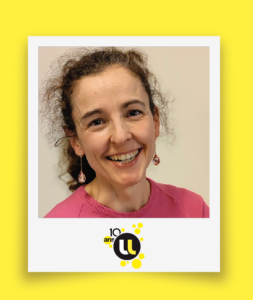On the occasion of 8 March, International Women’s Rights Day, we zoom in on Christel Métivier, head of the Fluids and complex flows in industry and nature team at LEMTA, and lecturer at the Faculty of Science and Technology.
What is your background ?
“I have always been attracted to the sciences, particularly mathematics. My university career began with a preparatory class in Physics and Technology. This confirmed my attraction to mathematics. The opening towards technology (industrial design, mechanics etc.) was an enriching experience. This course led me to enter a school of engineering in general mechanics: Arts et Métiers ParisTech (ex-ENSAM). I discovered the world of mechanics in the broadest sense of the word: from machining to equations, via casting and welding, including practical work in overalls and safety shoes! I refocused my last year of school in Paris on fluid mechanics, obtaining a Master’s degree in research at the Pierre et Marie Curie University (Jussieu) in parallel with my engineering degree. This last year was decisive for the future: I started a theoretical thesis in fluid mechanics, in parallel with which I had the opportunity to teach. The three years of thesis allowed me to concentrate fully on a research subject, which was a real personal and professional fulfilment crowned by two thesis prizes! Naturally, I wanted to pursue an academic career. This wish was fulfilled when I was recruited as a teacher-researcher (lecturer) in Grenoble and then in Nancy.
What theme are you working on and what are the applications ?
“My research activities concern energy and the way in which fluids flow. We are surrounded by fluids, whether in our bodies, in nature or in industry. Not all fluids flow in the same way, to illustrate this, we can take as examples water, honey, compotes, toothpaste, gel or wash. I have long studied the flow of model fluids when they are subjected to mechanical or thermal stress.
Recently, I have extended my activities to phase change materials which are widely used in the energy field, notably for thermal energy storage systems or for maintaining specific thermal conditions. The associated physical principle is simple, it consists in taking advantage of the latent heat released or absorbed during the phase change. In particular, the change of state from liquid to solid is accompanied by the release of heat (exothermic transformation), which the material must receive to allow the endothermic transformation from solid to liquid. Thus, the material stores the energy supplied to it during the endothermic phase change and releases this heat during the exothermic phase change. These materials are already present in our daily lives (e.g. heaters) but also in various technologies, notably in the building industry or intelligent textiles, and in nature (earth’s magma). I seek to understand the physical mechanisms associated with heat transfer during phase change, with or without flow. Understanding the physical mechanisms can have a direct consequence on the implementation of industrial processes.”
Could you share with us what drove you to this profession ?
“The starting point was my attraction to mathematics, and then gradually an opening towards physical and mechanical sciences. Scientific research has always had a special aura for me, since high school (as far back as I can remember)! Initially, I had a blurred but idealised vision of research via some great scientific discoveries and great scientists such as Albert Einstein, Pierre and Marie Curie. My vision became clearer as I went through my higher education. It was the thesis work that clearly revealed the world of research to me. I have always been curious, I like to learn and understand. I was frustrated during my training when I had to apply “ready-made” or very empirical formulas that seemed to come out of a magic hat! This made me realise that being an engineer was not for me, but that I needed to understand science in more depth. Today, I feel like an eternal student with the advantage of being able to choose the fields or subjects of investigation. Of course, we are more and more forced to do applied research, which can be a good thing, but basic research, without a priori application, must continue. Scientific research can be exciting. If it were possible, I would regularly do a new thesis so that I could concentrate for two or three years on the subject of my choice.
The fact that I am a woman has never posed any difficulty in my studies, even though women are very much in the minority in mechanical engineering studies. As far as the level or field of study and the intellectual capacities are concerned, I do not see any difference between men and women! In my opinion, the ‘distinctions’ come from preconceived ideas that go against any scientific approach.”
► Find all the portraits made by the University of Lorraine on Factuel
